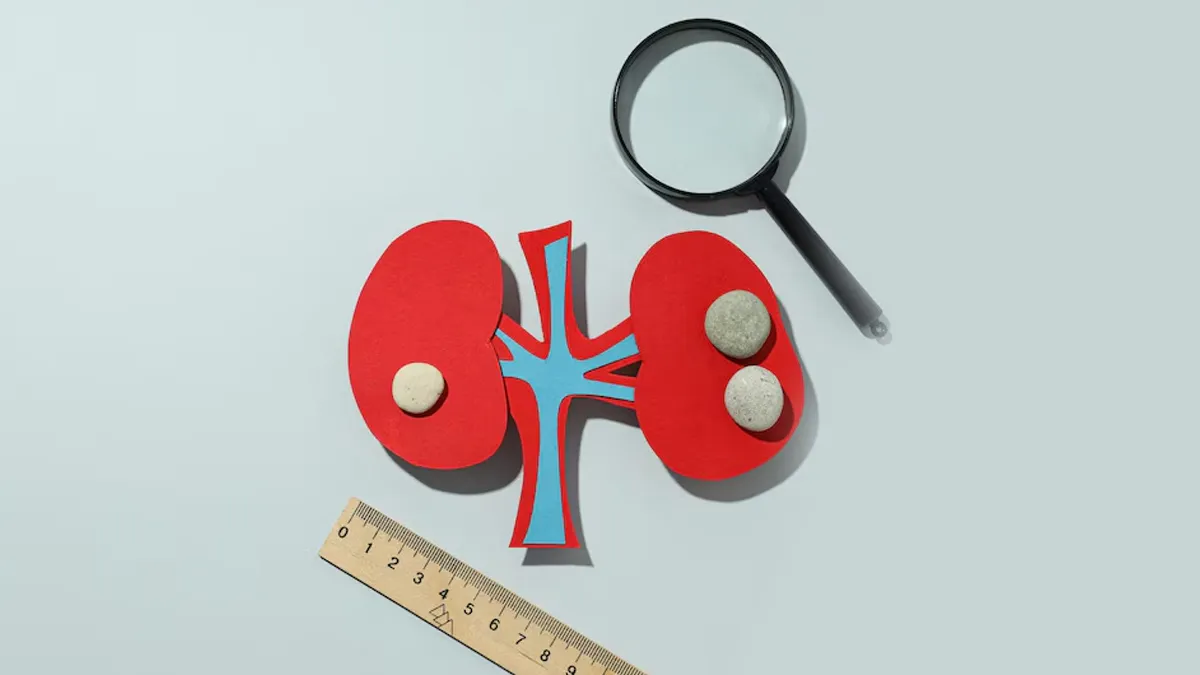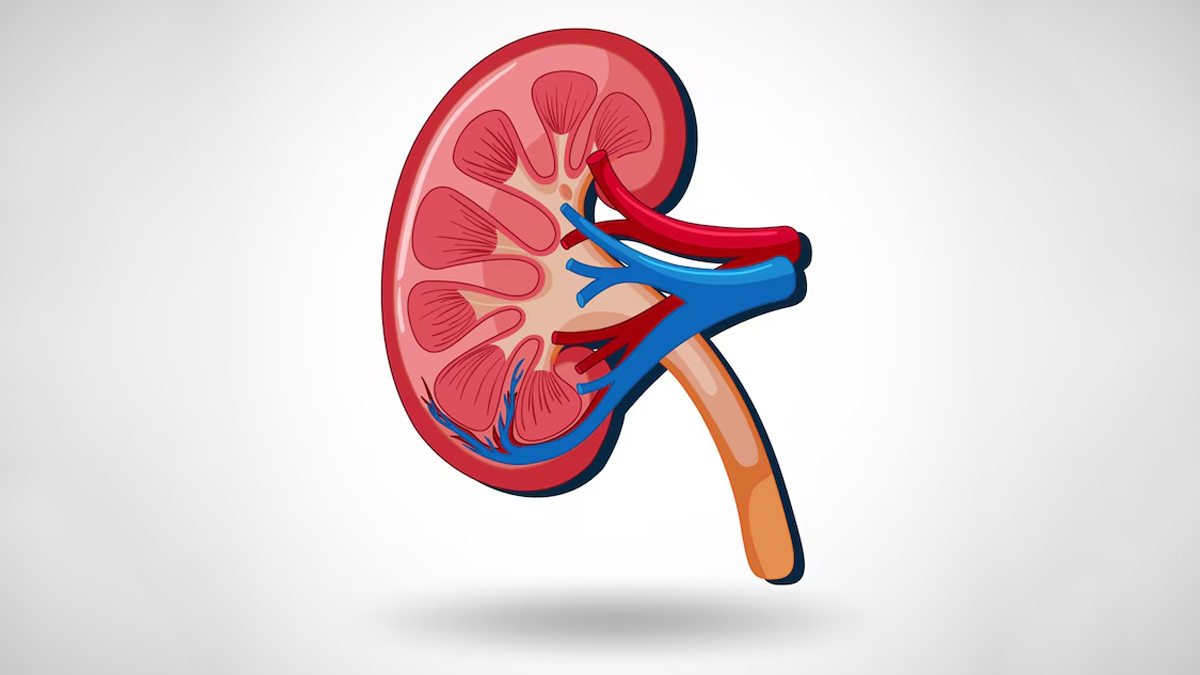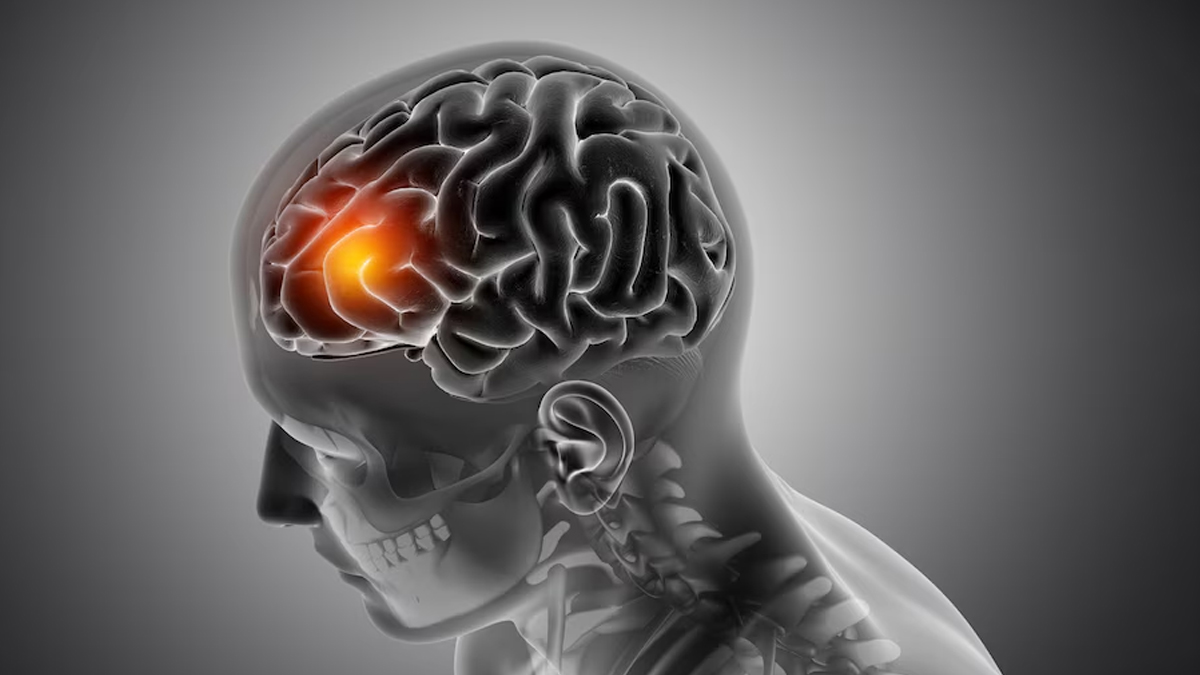
The kidneys are among the most vital organs, functioning as the body's natural filters by removing waste products, maintaining blood pressure, and balancing salts and water levels. However, when these organs fail, they not only disrupt the body's internal harmony but also pose serious risks to other organs, including the brain. Chronic Kidney Disease (CKD), a long-term condition affecting kidney function, has been strongly linked to an increased risk of stroke.
Table of Content:-
To understand the connection between stroke and kidney function OnlyMyHealth team interacted with Dr Vaibhav Keskar, Consultant Nephrologist and Kidney Transplant Physician, Fortis Hospital, Mulund, Mumbai.
The Role of the Kidneys and Chronic Kidney Disease

Dr Keskar explains, "Kidneys filter waste products from the blood and help maintain blood pressure, and balance salts and water in the body, so that other organs can function well. Any problem with the functioning or structure of the kidneys, which lasts for more than three months, is known as Chronic Kidney Disease (CKD)."
According to studies, CKD is a growing concern in India, with about one in six individuals potentially suffering from the condition. This statistic is alarming, particularly as CKD is known to increase the risk of cardiovascular diseases (CVDs) such as heart attacks, heart failure, and strokes. Dr Keskar highlights, "The risk factors of CKD, like hypertension, diabetes, and obesity, are increasing in our population. This means that we may see an increase in the cases of CKD in the near future."
Also read: Why Do Kidney Stone Cases Spike In Winters? Doctor Shares Tips To Manage And Prevent It
Connection Between CKD and Stroke

The relationship between CKD and stroke is multi-faceted. Traditional risk factors for stroke, including high blood pressure, diabetes, smoking, and high cholesterol, are common in patients with CKD. Furthermore, CKD itself exacerbates these risks.
Dr Keskar explains, "The endothelium (inner lining of blood vessels), which keeps the health of the blood vessels, cannot function properly in the presence of CKD. That leads to poorer health of arteries that supply blood to the brain. It also increases the risk of blood clots that may block the arteries. Having CKD also increases the risk of bleeding, which adds to the risk of developing a haemorrhagic stroke."
This dual risk of blockages and bleeding underscores the seriousness of CKD as a contributing factor to strokes.
Recognising Symptoms and Acting Swiftly

Strokes can be life-threatening, but early detection and timely medical intervention can significantly improve outcomes. Dr Keskar advises being alert to symptoms such as:
- Weakness in the hands or legs
- Asymmetry of the face
- Changes in speech
- Problems with balance, gait, or blurred vision
- Severe headaches or vomiting
"If you notice these symptoms, you should get yourself checked immediately," says Dr Keskar. A prompt diagnosis can save lives, and specialised tests may be required to confirm the presence of a stroke.
Also read:
Prevention
Preventing strokes in individuals with CKD requires a proactive and holistic approach. Lifestyle modifications and regular monitoring play a crucial role. Dr Keskar suggests:

- Controlling blood pressure
- Keeping blood sugar levels in check
- Stopping smoking
- Managing high cholesterol levels
- Following a healthy diet and engaging in regular exercise
- Maintaining a healthy weight
- Timely follow-ups with a nephrologist
"It is possible to prevent strokes in people with CKD by following these measures," Dr Keskar affirms.
A Preventable Outcome
Although CKD increases the risk of stroke, it is not an inevitable outcome. By adopting a healthy lifestyle and ensuring regular medical care, individuals with CKD can significantly reduce their risk.
Dr Keskar concluded, "Stroke is preventable if patients with CKD follow a healthy lifestyle and monitor their health regularly." Understanding the link between kidney failure and stroke is the first step in mitigating the risks. With growing awareness and commitment to preventive measures, the burden of stroke in CKD patients can be effectively managed, ensuring better health and quality of life.
Also watch this video
How we keep this article up to date:
We work with experts and keep a close eye on the latest in health and wellness. Whenever there is a new research or helpful information, we update our articles with accurate and useful advice.
Current Version